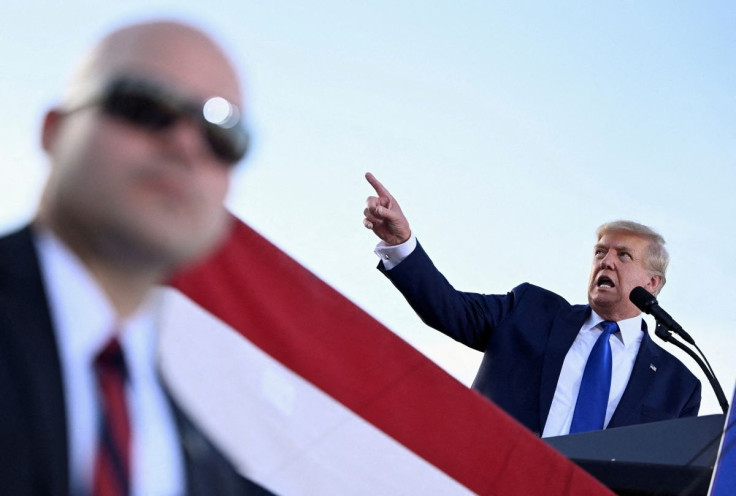Judge Says Trump Must Pay $110,000 Fine, Meet Other Conditions To Purge Contempt

Former U.S. President Donald Trump must pay a $110,000 fine and meet other conditions to purge a contempt of court order over his failure to comply with a subpoena in a civil probe into his business practices by New York state's attorney general, a judge said on Wednesday.
The judge, Arthur Engoron, also accused Trump during a virtual hearing of making a false statement in an affidavit relating to the subpoena seeking documents concerning his family real estate business, the Trump Organization.
Engoron said a $10,000-per-day fine he imposed on Trump in April for his failure to comply with the subpoena stopped accruing on Friday, when the former president and his lawyers filed new affidavits detailing steps they took to find documents relevant to Attorney General Letitia James' investigation.
Trump said in the May 6 sworn statement that he does not have any relevant documents.
Engoron took issue with Trump's claim in the affidavit that he has not communicated digitally since 2010, pointing to his past posts on Twitter and current posts on Truth Social, a network he founded.
"We all know he uses electronic communication - 80 million people were on his Twitter feed," Engoron said. "A sentence has to be true. That sentence is just not true."
Michael Madaio, a lawyer for Trump, said the statement was not meant to imply that Trump did not post on social media. Alina Habba, another Trump lawyer, said Trump did not use direct messaging on Twitter and that his tweets were not relevant to the investigation.
"Everything relevant to the (attorney general's) subpoena has been produced," Habba said.
The judge gave Trump until May 20 to comply with the additional conditions, or else the contempt order could be restored and the fine reinstated retroactively.
The conditions include having a third-party firm that has been hired to search the Trump Organization's records submit a report about Trump's compliance with the subpoena.
Engoron also asked for affidavits from several Trump Organization employees and lawyers, as well as a sworn statement from a Trump assistant about how the assistant handled Trump's documents.
Once Trump pays the fine, the funds will be held in escrow pending his appeal of the contempt order.
PARALLEL CRIMINAL PROBE
James has said her probe has turned up evidence that the Trump Organization - which manages hotels, golf courses and other real estate around the world - has given banks and tax authorities misleading financial information to obtain benefits such as favorable loans and tax breaks.
A Republican, Trump denies wrongdoing and calls the investigation politically motivated. James is a Democrat.
The Manhattan District Attorney's office, now run by Alvin Bragg, is also conducting a criminal investigation into how the Trump Organization valued its assets, which led to last summer's indictment of the company's chief financial officer on tax fraud charges.
Trump in February appealed a ruling by Engoron that he and his oldest children Donald Trump Jr and Ivanka Trump testify in James' civil probe, saying their words could be used against them in Bragg's probe in violation of their constitutional rights.
Some lawyers from James' office are working with Bragg's team on the criminal probe.
At a Wednesday afternoon hearing, a four-judge panel of a state appeals court in Manhattan appeared skeptical of Trump's bid to overturn Engoron's ruling.
Rolando Acosta, the presiding justice, noted that Trump and his children could simply invoke their right against self-incrimination and decline to answer questions.
"You cannot avoid a civil investigation," Acosta said. "The only remedy that you have is to invoke your privilege of not incriminating yourself."
The court did not say when it will rule.
© Copyright Thomson Reuters 2024. All rights reserved.







